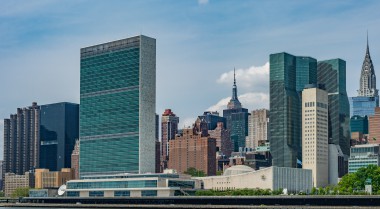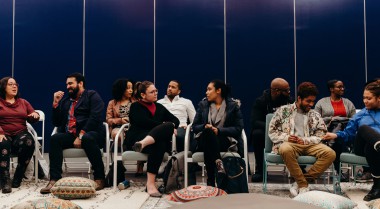Statement on the Summit of the Future, Our Common Agenda: Preparation for the Zero Draft of the Pact for the Future
Thank You, moderator,
My name is Mathilde Dépéry, and I represent the Global Partnership for the Prevention of Armed Conflict (GPPAC), a global network of local peacebuilders. First, let me start by reiterating that the UN Secretary-General's New Agenda for Peace was essential to start the conversation on the responsibility for sustaining peace beyond the UN and onto the Member States. It is important to ensure that the Pact of the Future helps unpack national responsibilities for sustaining peace. To this extent, we would like to highlight the following points:
The chapeau of the Pact should adapt the language of the dual General Assembly - Security Council resolution on sustaining peace (A/RES/75/201-S/RES/2558) and highlight that the participation of all stakeholders, including local peacebuilders, should be equal, full and meaningful based on their comparative advantages. Emphasising inclusivity, the participation of women, young people, local actors, indigenous groups, and all other groups in vulnerable situations should have the same standards applicable to all other stakeholders. All stakeholders have an inherent right to participate in peacebuilding work on equal footing as enshrined in the International Bill of Rights.
Chapter 2 of the Pact – which is going to focus on international peace and security – must capitalise on existing progress in peacebuilding:
- The Peacebuilding Commission (PBC) has a crucial role to play in that regard as its mandate is focused towards supporting peace efforts in conflict-affected countries. Chapter 2 should guide the PBC towards bolstering its convening capacity by strengthening learning-oriented strong and operational partnerships with diverse peacebuilding and development stakeholders, including local peacebuilders. Based on the recent CSO-UN Dialogue on Peacebuilding, the Core Group can offer a pool of stakeholders that could be nominated to engage with the PBC through an unbiased and independent process. Without clear modalities for CSO participation, the Commission will not see a comprehensive picture of the situation on the ground. The PBC should also institutionalise practices that facilitate the formulation and provision of substantive and timely advice to the principal organs and relevant entities of the UN. The silos within the UN system will continue to exist as long as intergovernmental bodies are not connected and lack the peacebuilding expertise that the PBC could offer.
- The question of financing, including the follow-up from the 2022 General Assembly resolution on financing for peacebuilding (A/RES/76/305) should be addressed by the Pact as it is one of the main challenges in international peace and security. The Pact should reiterate the calls for (1) prioritising participatory funding approaches, (2) generating sustained, flexible, and direct funding for local peace actors and their organisations, (3) supporting intermediary models rooted in network and movement-building, and (4) promoting a community-determined definition of impact.
- The Pact should provide clear next steps, including encouraging a follow-up on the recommendations of the upcoming 2025 Peacebuilding Architecture Review (PBAR). A lot of the language would be hard to negotiate for the Pact; however, the Pact is well positioned to encourage processes of reflection that will lead to the necessary shifts in current peacebuilding architecture.
To conclude, I would like to underline the critical importance of jointly exploring the extent to which Member States, beyond the UN System, are able to come together around sustaining peace both in terms of political and financial support. GPPAC stands ready to support them in this exploration.
I thank you for your attention.


